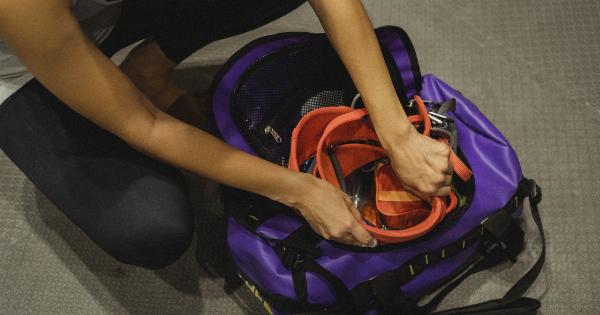A heatwave is a long period of excessively hot weather, which can be dangerous and even life-threatening. Heatwaves can occur in various parts of the world, and their intensity and frequency have been increasing due to climate change.
It is crucial for citizens to take proactive measures to stay safe and protect themselves during a heatwave. This article will outline ten essential protective measures that individuals can undertake to safeguard their health and well-being.
1. Stay Hydrated
During a heatwave, it is essential to stay properly hydrated to prevent dehydration and heat-related illnesses. Drink plenty of water and avoid beverages that can cause dehydration, such as alcohol, caffeinated drinks, and sugary sodas.
Carry a water bottle with you at all times and make it a habit to sip water frequently, even if you do not feel thirsty.
2. Dress Appropriately
Choose lightweight, loose-fitting, and light-colored clothing during a heatwave. Light-colored fabrics reflect sunlight, keeping you cooler.
Opt for breathable materials like cotton or linen to allow air circulation and sweat evaporation, thus preventing overheating. Avoid tight-fitting clothes that can trap heat and increase the risk of heat-related illnesses.
3. Seek Shade
When outdoors during a heatwave, seek shade whenever possible. Stay under umbrellas, trees, or canopies to protect yourself from direct sunlight. Avoid prolonged sun exposure, especially during the hottest part of the day, which is usually between 10 a.m.
and 4 p.m. If you must be outside, try to find shaded areas or create your own shade using umbrellas or hats.
4. Use Sunscreen
Apply sunscreen generously to exposed skin to protect yourself from harmful ultraviolet (UV) rays. Use a broad-spectrum sunscreen with a high Sun Protection Factor (SPF) of at least 30.
Remember to reapply every two hours, or more frequently if you are sweating or swimming. Sunburns can further increase the risk of overheating and heat-related illnesses.
5. Stay Cool Indoors
During a heatwave, it is crucial to stay cool indoors, especially for vulnerable individuals such as the elderly, young children, and those with chronic illnesses.
If you do not have air conditioning at home, consider visiting air-conditioned public spaces like shopping malls, libraries, or community centers. Alternatively, use fans, keep windows and curtains closed during the day, and use natural ventilation techniques like opening windows and doors during the cooler evenings and nights.
6. Avoid Strenuous Physical Activity
Refrain from engaging in strenuous physical activities during a heatwave, particularly during the hottest parts of the day. Exercise in the early morning or late evening when temperatures are lower.
If you must be active outdoors, take frequent breaks, find shade, and stay hydrated. Listen to your body, and if you start feeling unwell, stop the activity immediately and seek medical assistance if necessary.
7. Check on Vulnerable Individuals
During a heatwave, check on vulnerable individuals in your community, such as the elderly, those living alone, or individuals with pre-existing medical conditions. They may be more susceptible to the adverse effects of heat.
Offer assistance, share information about protective measures, and ensure they have access to a cool environment or appropriate cooling measures.
8. Know the Signs of Heat-related Illnesses
Be aware of the signs and symptoms of common heat-related illnesses such as heat exhaustion and heatstroke. Heat exhaustion symptoms may include heavy sweating, weakness, dizziness, headache, and nausea.
Heatstroke, which is a medical emergency, can manifest as a high body temperature (above 103°F or 39.4°C), confusion, rapid breathing, rapid pulse, and even loss of consciousness. Seek immediate medical help if you or someone else exhibits these symptoms.
9. Take Care of Pets
Just like humans, pets can also suffer from the effects of excessive heat. Ensure that your pets have access to shade, plenty of fresh water, and avoid taking them for walks on hot pavement or during peak heat periods.
Never leave pets unattended in vehicles, as the temperature inside a car can rise dangerously within minutes, even with the windows cracked. If you suspect your pet is suffering from heatstroke, contact a veterinarian immediately.
10. Stay Informed
Stay informed about weather forecasts, heatwave warnings, and public health advisories in your area. Many countries and regions have heatwave early warning systems in place, which provide information and advice on how to stay safe during extreme heat.
Follow guidelines and recommendations from local authorities and health organizations to ensure you are well-prepared and can take appropriate preventive measures.
Conclusion
A heatwave can pose significant risks to individuals’ health and well-being, but by taking proactive measures, you can stay safe and protect yourself during these extreme weather conditions.
Stay hydrated, dress appropriately, seek shade, use sunscreen, stay cool indoors, avoid strenuous activity, check on vulnerable individuals, know the signs of heat-related illnesses, take care of pets, and stay informed. By following these protective measures, you can reduce the risk of heat-related illnesses and enjoy a healthier and safer summer.



























